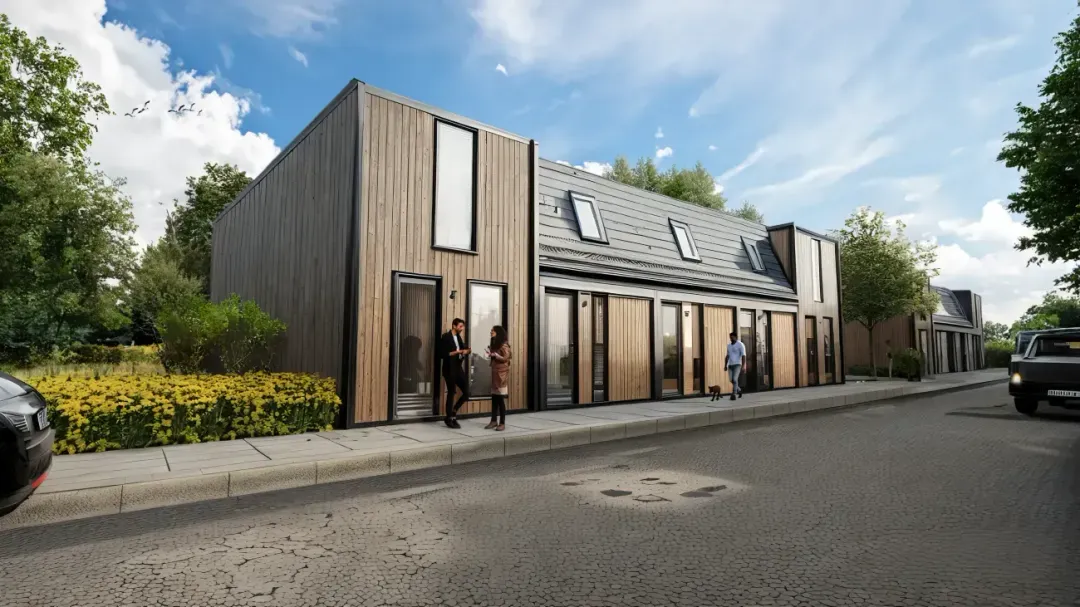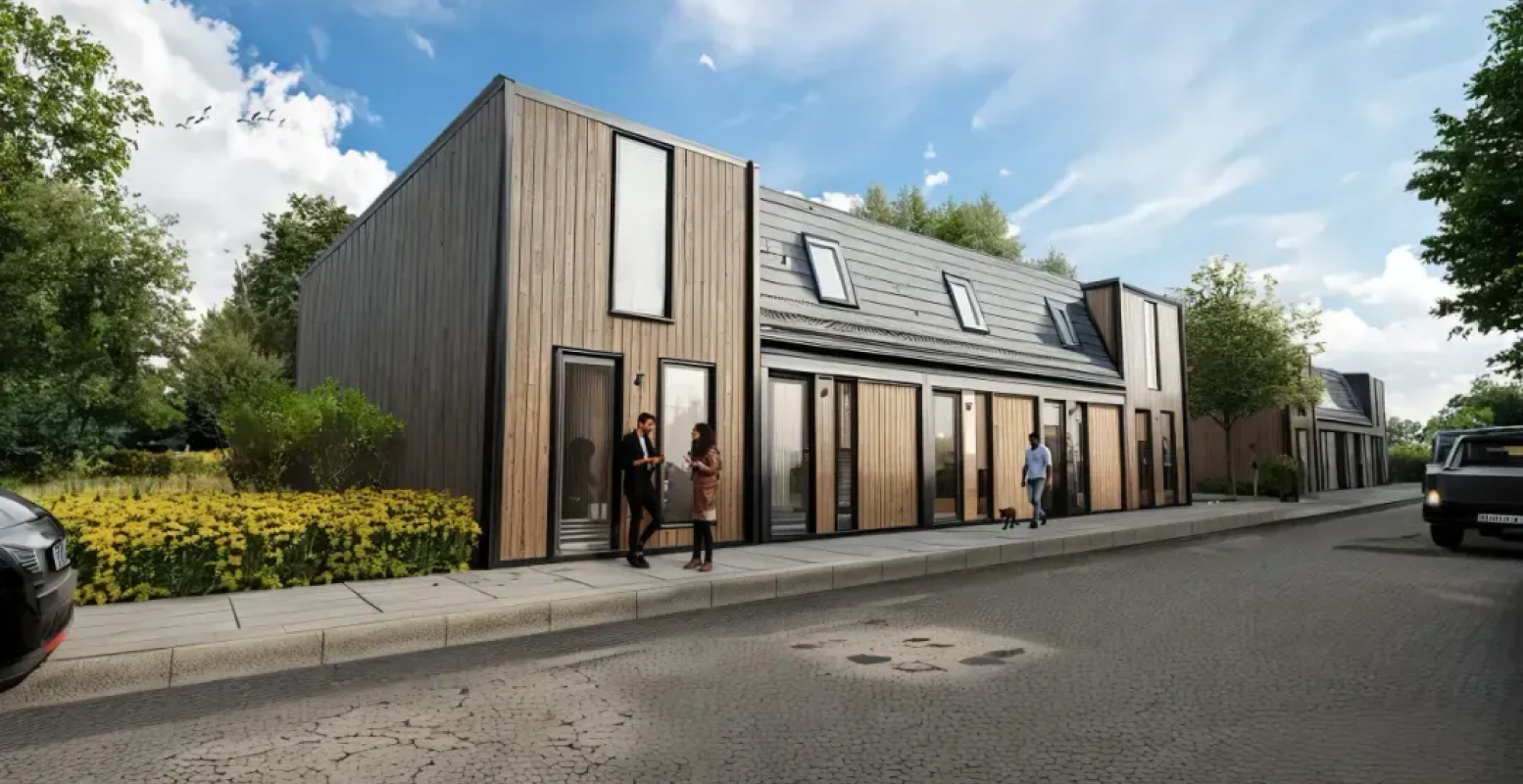
Circular Modular Housing Project focuses on social housing
Brightlands Chemelot Campus in Sittard-Geleen is working with a consortium of companies and knowledge institutions from Limburg to develop an innovative housing concept. This concept utilizes as many circular and smart materials as possible, which are not only circular but also adaptable, sustainable, and modular. The house aims to address the challenges of the nitrogen and housing crises through its fast construction process and the ability to be placed on-site within a single day.
With this project, the goal is to develop an affordable, quickly-built, modular, circular, and energy-neutral row house, with a corresponding circular business and financing model. The aim is to make the house 100% sustainable, circular, and modular, enabling it to adapt to the rapidly changing housing needs of residents and the demographic challenges faced by Limburg.
Astrid Boeijen, CEO of Brightlands Chemelot Campus: “By investing in this construction project, we are not only contributing to the tangible realization of circular homes but also strengthening the foundations of our mission to foster innovation and have a positive impact on the way we build and live. This initiative aligns perfectly with the expansion of our circular materials ecosystem, with Brightlands Circular Space as a leading hub for innovation and collaboration.”
Last year, the companies CUBE Homes, SAM Panels, Mosa, and Block Materials, together with Brightlands Materials Center, CHILL/ZUYD University of Applied Sciences, and Brightlands Chemelot Campus, with the support of ZOwonen, Bouwmensen, and Rabobank, formed a consortium to bring a 100% Limburg house to market. Following the success of the 100% Limburg bike and its numerous regional spin-offs, it’s now time for a new 100% Limburg product. Bram Tankink, initiator and project leader of the project, emphasizes that this product offers a future-proof solution to the housing crisis and provides a circular, sustainable alternative to current construction methods.
To achieve the highest level of circularity and sustainability, the row house will be built using only biobased and circular materials. During this project, four material innovations are being developed, which will form the basis of a complete circular house, demonstrated within the row house after development. These circular innovations, developed by the project partners, include biobased wall and ceiling panels, thermochrome windows, detachable tile systems, and lightweight aerogel insulation panels.

The project takes a pioneering role in the construction industry, aiming for a fully circular economy by 2050. With the collaboration of various parties, the house will be brought to market, with CUBE Homes playing a leading role in this development.
To make the house financially more attractive, the project is exploring accessible financing options. Traditional renting or taking out a mortgage is not feasible or practical for flexible housing. However, options such as leasing models are being investigated in collaboration with Rabobank and Block Materials. The combination of a circular business model and accessible financing makes the high-quality circular house available at a low cost.
With Brightlands Campus as the project lead, the consortium has written a plan for the development and realization of the house. The demonstration house will use aerogel insulation material derived from the ongoing BRIMM project, thermochromic windows from Brightlands Materials Centre, biobased wall panels from SAM Panels, and a modular, circular wall and tile system from Mosa. Block Materials is involved in mapping all materials and analysing the CO2 footprint. They are creating a database for a material passport, ensuring that the origins of all materials are traceable and facilitating effective supply chain integration through data provision. This ensures that, if possible, materials can be reused in the future.
Casper Gelderblom, Alderman of Heerlen: “This project perfectly aligns with the recently announced (EU)regional plans for establishing a European Centre for Circular Construction in Heerlen. Many of the consortium partners behind this project are also involved in this forthcoming centre, which will be launched soon.”
The OPZuid project has a duration of 3 years, with a total budget of €2.6 million, receiving a contribution from the European Regional Development Fund (ERDF), with co-financing from the Province of Limburg. The first homes are expected to be ready for the market by 2025.
This collaborative effort represents a significant step forward in the construction industry’s transition toward circularity and sustainability. The innovative housing model not only addresses critical issues such as housing shortages and environmental impact but also sets the stage for a future where buildings are adaptable, sustainable, and regenerative.




.svg)

